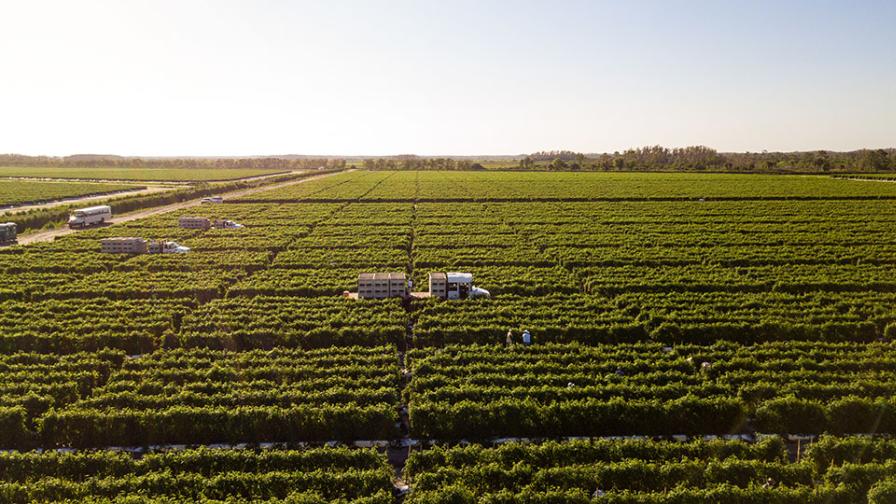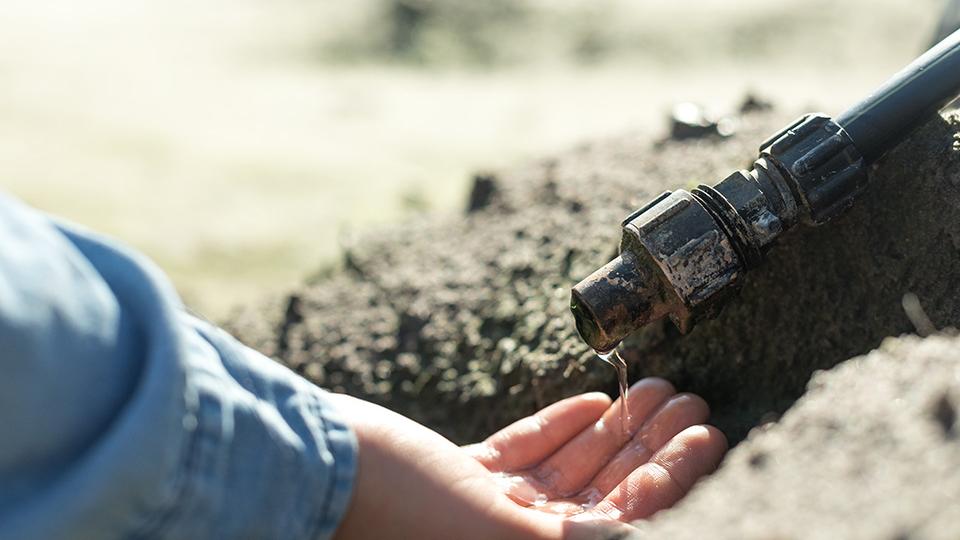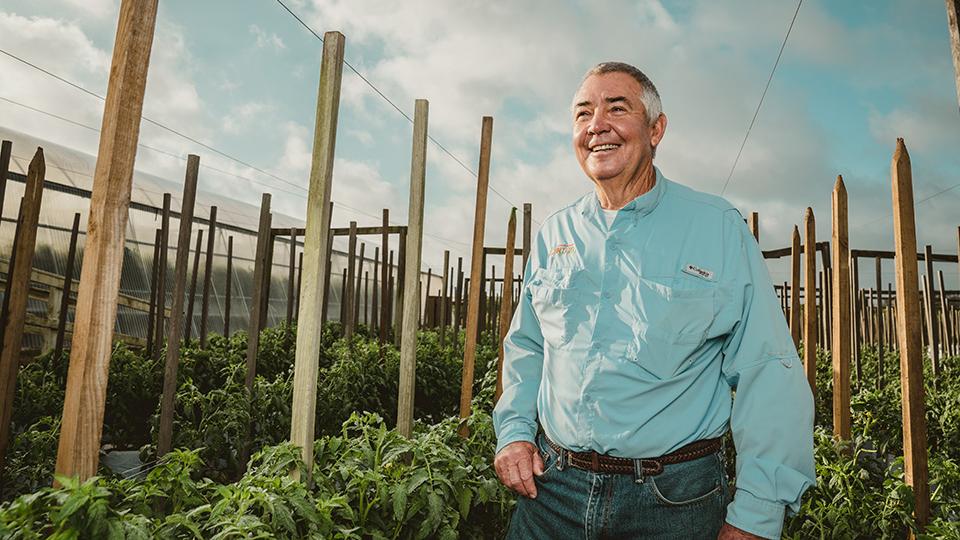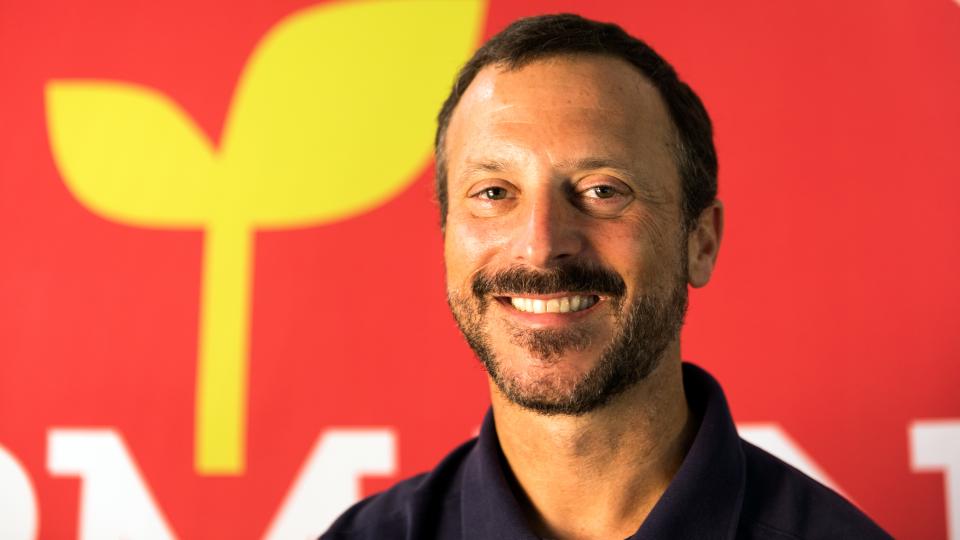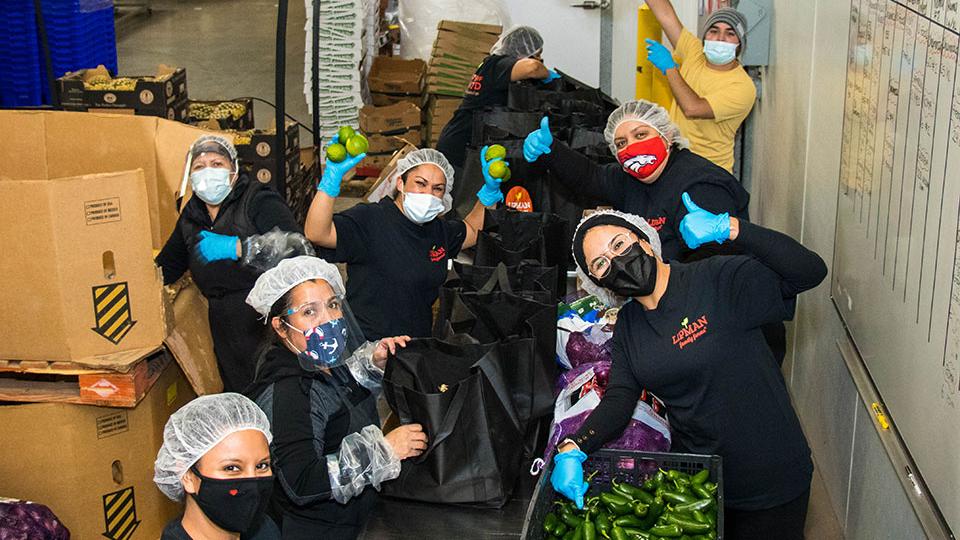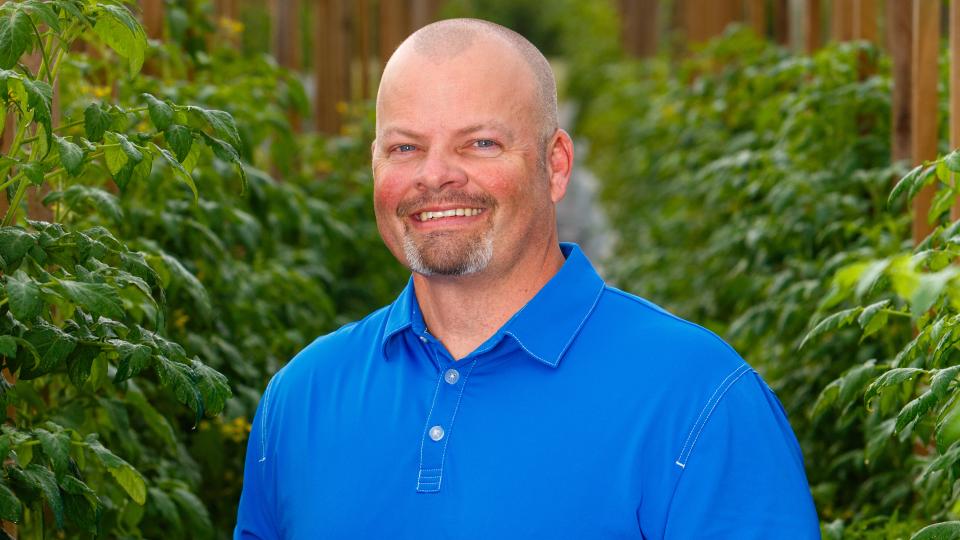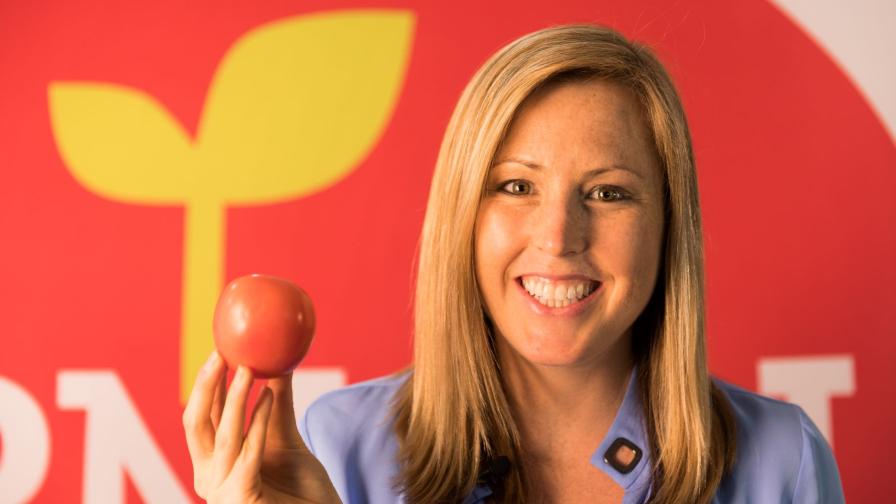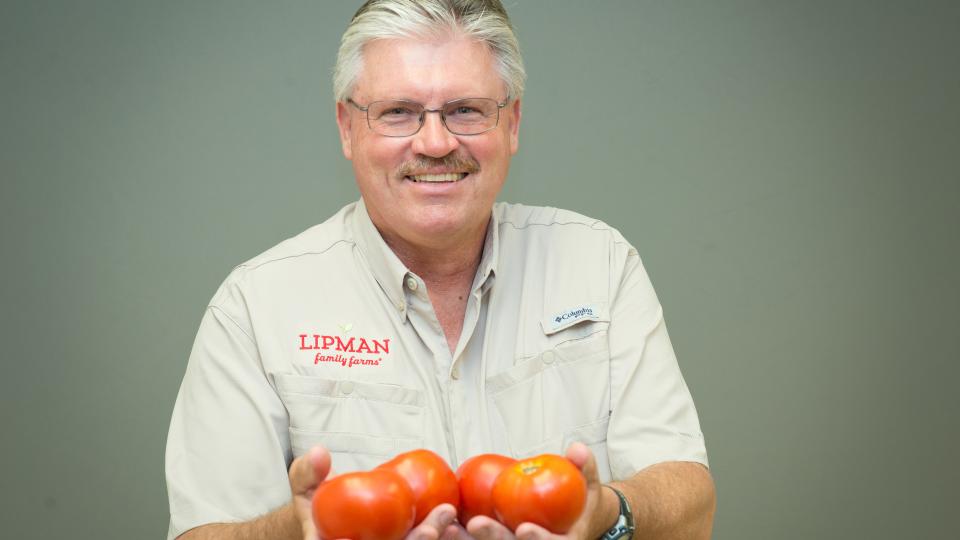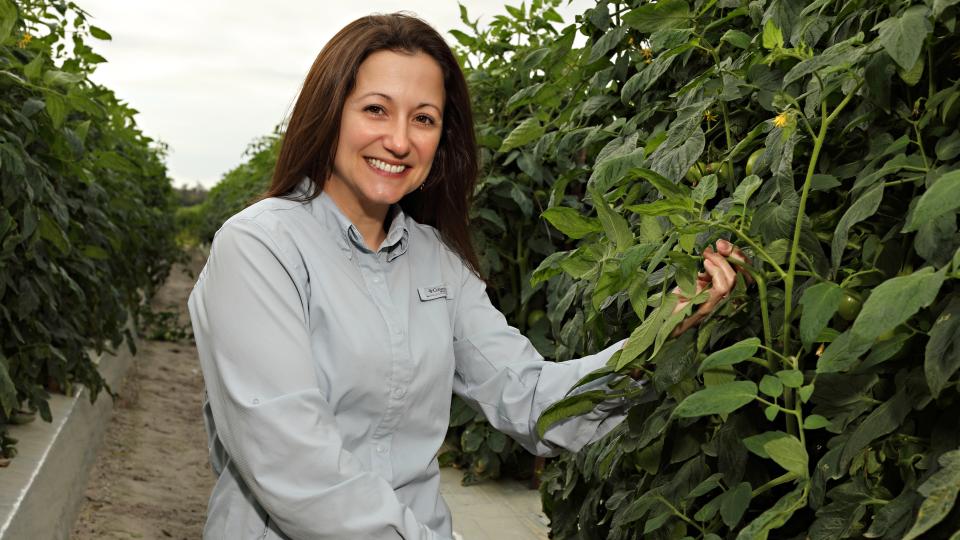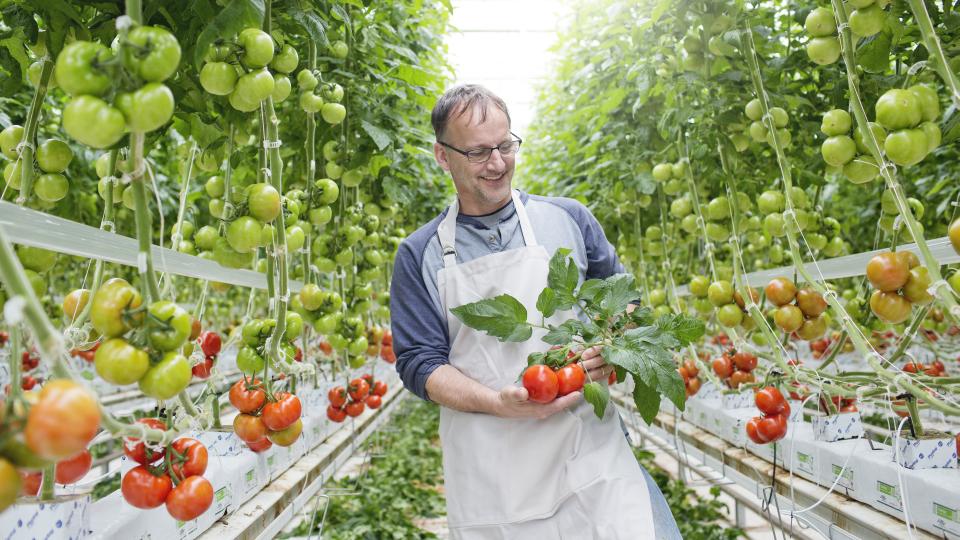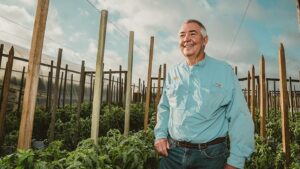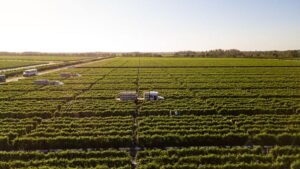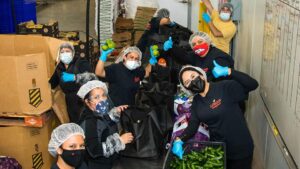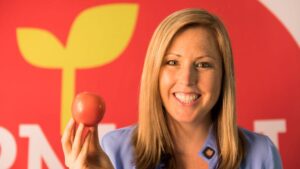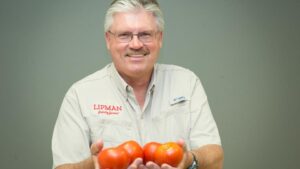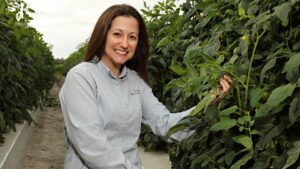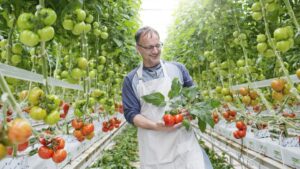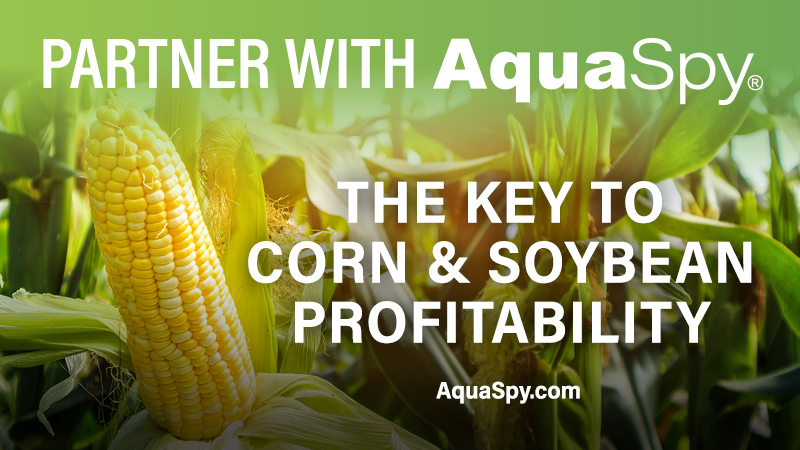What’s the Secret to Lipman Family Farms’ Success? Its People
Lipman Family Farms, renowned industry wide for its innovations in all aspects of growing vegetables, especially tomatoes, is in its fourth generation of family-owned farming operations. How it managed to reach its current heights is worth a closer look.
The secret to its success is deceptively simple: its people. It doesn’t have a monopoly on creative, intelligent staff, however. So why is Lipman able to tap into the talents of its team so fully?
Lipman Family Farms doesn’t lose sight of the importance of those bright minds. It created an internal structure that allows for innovative thinking rather than stifling it.
“It has always been a very people-focused company. It’s really built into our DNA and our culture to its core,” says Jaime Weisinger, Director of Community and Government Relations and fourth-generation Lipman family member.
Something as simple as testing a new product involves both an internal and an external team working together, says Jamie Williams, Director of Florida Farming for Lipman Family Farms.
You must pool the talents of those with technical expertise with others who look at the business process. You’ll need them to support whoever ensures the product has room to perform without risking production levels if it doesn’t work out. And to analyze complicated results, it often involves working with external scientists who gather and make sense of the data.
When it’s all said and done, everyone along the way is watching for any business opportunities outside the limits of the trial.
It can be complicated. Such a process can and has paralyzed other growers, stunting potential growth. To successfully keep projects going is a lot like assembling a jigsaw puzzle each day, Weisinger says.
“You know, it’s a lot of parts that come together to execute our business plan. And it’s not just parts. It’s people,” he says.
How Trials Work at Lipman
Let’s take a deeper look at the trials system, since it illustrates this cooperative teamwork so well.
The first step of any trial is to find the product or concept to test. And that starts with having enough connections that ideas come to you.
Lipman Family Farms actively supports state and national associations and Extension programs (e.g., University of Florida, Institute of Food and Agricultural Sciences).
The other researchers and fellow growers it meets helps them stay up to date on the latest methods.
“You know, we are just plugged into the business of farming,” Williams says.
Just about everything to do with production is worth considering for a trial, Williams says. In just fertilizers, Lipman has taken a closer look at carbon in the fertilizer source, at different mixture of nutrients, and the different grinds on fertilizers to make them finer or coarser for slower or faster delivery.
Worthy test subjects include improving the quality of work, not just crop yield.
“One thing we’re constantly thinking about is workers’ experience and our employees out there in the field,” says Elyse Lipman, Chief Strategy Officer and fourth-generation Lipman family member. “Are there ways that we can improve their experience, as well as efficiency?”
Lipman has trialed various automation technologies and harvest techniques in order to improve the labor experience involved in planting and harvesting and reduce the strenuous work these processes can require.
Bed Geometry Trial
A few years ago, Lipman conducted a small trial on bed sizes at its Virginia operation. Its typical beds for tomatoes were 30 inches wide and 8 inches tall, grown with drip under plastic. For this trial, it ran the beds deeper and narrower than a typical row, predicting this would reduce runoff and improve yields.
“The areas that were slightly wetter in the farm did much, much better under this higher bed profile,” Williams says. “So, we moved it to Florida because Florida is a wet state. We had better drainage. We got better production.”
With promising results, Williams and the team converted the entire Florida operation to the new bed dimension. This trial also allowed for lower inputs and required less plastic material use.
In the following season, the team ran a couple pilot trials with even narrower beds, though not much deeper, to save on fumigation costs.
“This year we’re putting in about 4% to 5% of our acreage for trialing, and one of our locations will go to this very narrow bed profile to vet out the fumigation savings,” he says.
And that rollout brings in another key aspect of how Lipman supports innovative ideas. All through the trial, the team reviews if the process increases production, decreases costs, or both.
“And if it does, then we’ll make the switch to more locations. And we do that systematically. But we’re very cautious about the move to start with, because it means you must go out and buy new equipment. You have to invest in this change,” Williams says.
Because of the complexity of implementing new production methods, Lipman adds a dash of caution to its innovations.
“We never want to make huge changes on the farm all at once,” Lipman says. “You never want to change five huge things in any given year. But we’re constantly trying new things all the time. And luckily, we have the team, the resources, and the space to do that.”
Community Service
The Lipman team views external relationships as a way to give back to the industry and the communities that support it.
Lipman Family Farms has a robust program to give back to the communities they’re embedded with across the continent, from Oregon, to Ontario, to Florida, and many other communities in between.
Each location has what it terms Community Champions, and that Champion selects the relevant charities and organizations to support throughout the year.
It began with the original location of Immokalee, FL.
“My great-grandfather, Max Lipman, who founded the company along with his kids, couldn’t read or write. He was a whiz at math but could never read or write, but he made sure that all six of his kids had the opportunity to go to college,” Weisinger says. “So, in the initial stages of giving back, we made sure we supported education.”
Lipman Family Farms’ attention to the people in its company, its community, and the industry keeps it grounded. Its people help to decide what to invest in and which concepts to pursue. And it all results in a top-notch operation worthy of the honorable American Vegetable GrowerSM Grower Achievement Award, National Winner.
Congratulations to Lipman Family Farms!
Talk to any Lipman manager, and you’ll quickly find out they fully embrace the company motto: Good From the Ground Up. It sums up everything they do, from the crop, to supporting employees and communities, to nimble responses to market forces. It points out both their ethical stances and the earthiness at the core of agriculture.
Lipman Family Farms is indeed good from the ground up. And American Vegetable Grower is proud to name the operation its 2022 Grower Achievement Award, National Winner.




